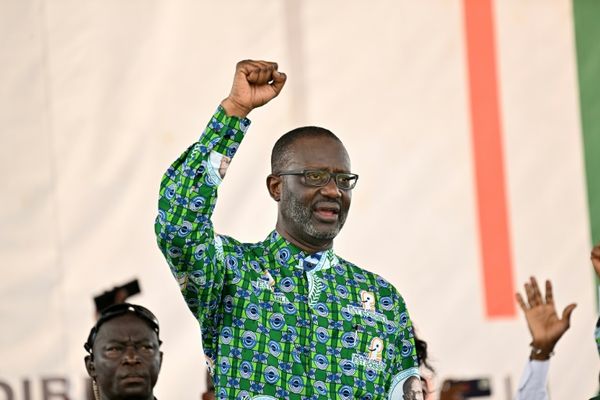
The brief pause in election campaign hostilities over the Easter weekend will abruptly end on Tuesday, as the opening of early voting marks the start of the final push to the 3 May poll.
With opinion polls showing a collapse in support for the Coalition, Labor is now hopeful of retaining majority government – a result that appeared out of reach just a month ago.
Here are five things to watch for in the final 12 days of the campaign.
Not ‘waving a white flag’
Polls suggest support for Peter Dutton’s Coalition has cratered in the past month, including in the marginal seats that could decide the election.
But the opposition, at least publicly, is refusing to concede defeat.
“We are in it to win it. I can assure you there is no one on our side waving a white flag,” the shadow housing minister, Michael Sukkar, told ABC’s Insiders on Sunday.
Party strategists maintain that while the Coalition vote has “softened” in recent weeks, their internal numbers are not as dire as those in the public domain. The opposition is still confident of gaining several Melbourne seats, including Chisholm, Aston and McEwen.
But a strong showing in Victoria won’t be enough to put Dutton within striking distance of even minority government unless he makes inroads elsewhere – particularly New South Wales and Western Australia.
The latest Guardian Essential poll found 47% of voters were either undecided or could still be turned, making the final 12 days of campaigning absolutely critical for the two leaders.
The big scare
Accusations of so-called “scare campaigns” are part and parcel of elections – and 2025 has been no different.
Labor has for weeks claimed the Coalition would need to gut Medicare – or other essential services – to fund its “$600bn nuclear reactors”. These accusations have been levelled despite the opposition matching Labor’s major health commitments, including $8.5bn to boost bulk-billing rates.
Labor’s attacks have continued unabated, escalating to the point of claims online that Dutton would cut funding to Medicare urgent clinics, “forcing them to close”.
For the record, the Coalition is committed to all existing clinics and has promised to open several others if elected. However, it has stopped short of supporting Labor’s pre-election pledge to open 50 new centres, labelling it as pork-barrelling.
The employment minister, Murray Watt, refused to back down when challenged on Sunday on the “lie” Labor was pushing.
“How else can he pay for his $600bn in nuclear reactors?” Watt told Sky News.
The shadow transport minister, Bridget McKenzie, said the Coalition’s full list of proposed clinic sites would be released by 3 May. But she made a clear promise on Sunday that no clinics were slated for closure under a Dutton government.
That assurance is unlikely to stop Labor’s campaign.
Defence
The opposition is expected to use the run-up to Anzac Day on Friday to unveil its defence policy, which will probably be its final major announcement ahead of polling day.
Labor has committed to increase the military budget to beyond 2.3% of GDP by 2033-34.
Dutton last week told the Australian newspaper that target was “totally inadequate”, all but confirming the Coalition would seek to outgun Labor on defence spending.
What’s the cost?
Labor and the Coalition have so far made multibillion-dollar promises in health, housing and income tax, among other areas, with scarce detail on exactly what – if anything – would be cut to fund the spending.
Some of those details will be revealed when the major parties release their full election costings ahead of 3 May. The highly anticipated documents will finally put a price tag on several Coalition policies, including its promised tax-deductible lunches.
The opposition has previously promised a $7bn annual savings from downsizing the federal public service by 41,000 employees through a combination of a hiring freeze, natural attrition and voluntary redundancies.
Dutton hinted at least week’s leaders’ debate that its savings would not be limited to the public service.
The finance minister, Katy Gallagher, has confirmed a re-elected Albanese government would continue to reduce the commonwealth’s use of consultants after saving almost $5bn on outsourced work in the last term.
The final debates
Albanese and Dutton have faced-off twice in the campaign so far: first at a News Corp-hosted people’s forum and then inside the ABC’s Parramatta studios.
Channel 9 will host the third debate on Tuesday night, just hours after early voting begins.
And 7News will host the fourth and final debate on 27 April, giving the leaders one last chance to impress a prime-time audience before polling day.







